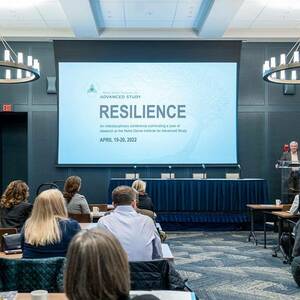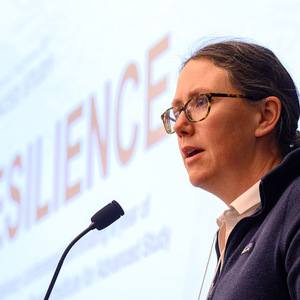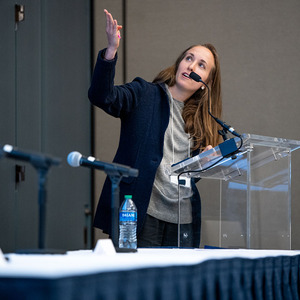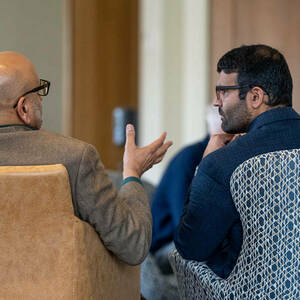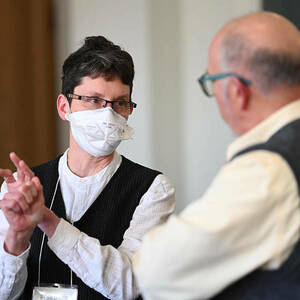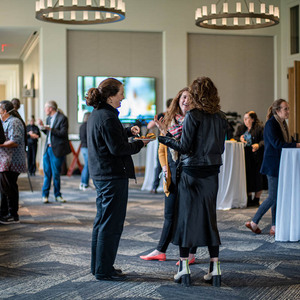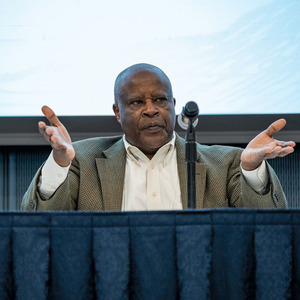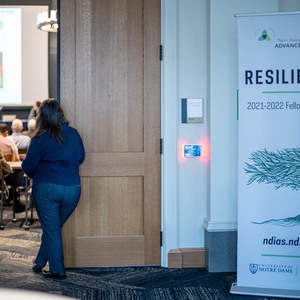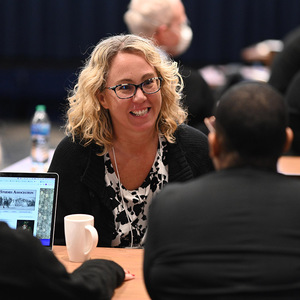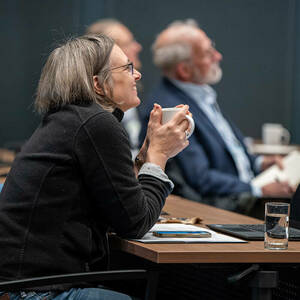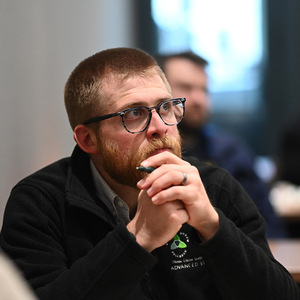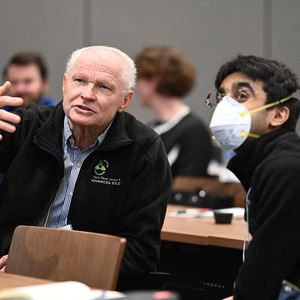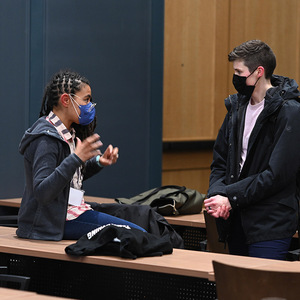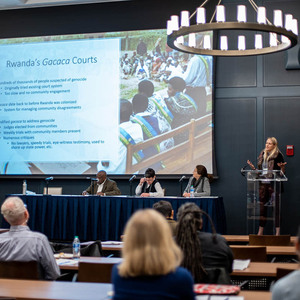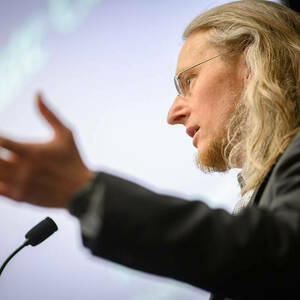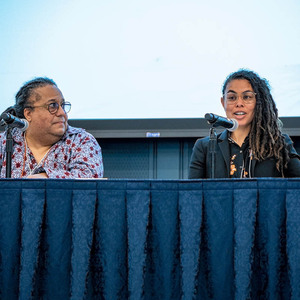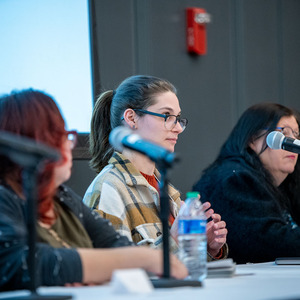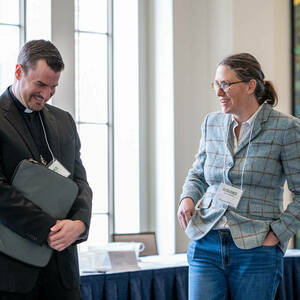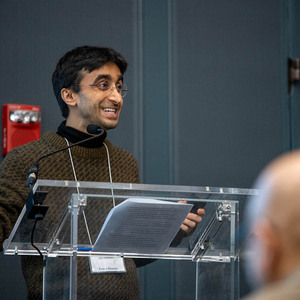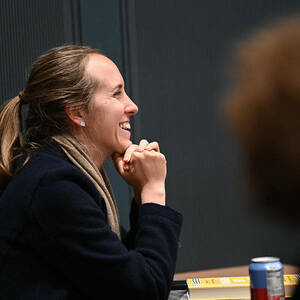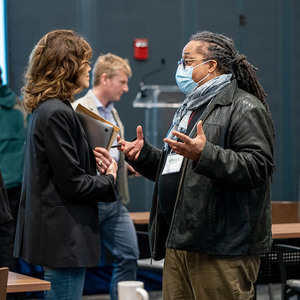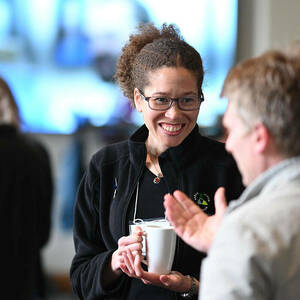The Notre Dame Institute for Advanced Study Hosts Conference on Resilience (Photo Gallery)
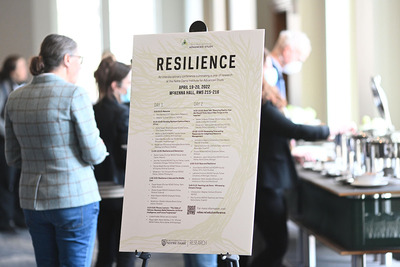
The Notre Dame Institute for Advanced Study hosted its first annual interdisciplinary theme-based capstone conference on April 19-20, 2022. Each session of the conference focused on an aspect of resilience, the Institute’s organizing research theme for 2021-2022.
“We’ve had the opportunity to host some outstanding projects this year, each of which take up the question of how individuals and systems respond to shocks and trauma. Our faculty and graduate fellows each took a risk in dedicating themselves to an intensive year of interdisciplinary collaboration, and we could not be more excited about the results. Our capstone conference gave us the opportunity to include many more members of the community in this work,” said Meghan Sullivan, Director of the NDIAS and the Wilsey Family College Professor of Philosophy.
Acclaimed writer and journalist Linda Kinstler delivered a plenary lecture entitled “The Odds of Oblivion: Bayesian Belief Networks, Artificial Intelligence, and Future Forgiveness.” The lecture discussed the history of probabilistic reasoning about major philosophical questions–the existence of God, the potential for a catastrophic event–and then applied these historical insights to contemporary debates about existential risk in ethics. Drawing from classical literature, computer science, Enlightenment philosophy, and her own extensive reporting on the recent Effective Altruism movement, Kinstler argued that some seemingly new problems in AI ethics are in fact quite old debates about probabilities and beliefs.
The conference featured panel discussions organized around the work-in-progress of current and former fellows. Sessions included topics such as race and resilience, resilience and democracy, resilience in Asia and the Middle East, and resilience and indigenous resource management.
“We were also grateful to be able to bring back members from several former NDIAS cohorts, and the conference gave us an important occasion to build research connections between fellows across fellowship years,” Sullivan said.
Walter Scheirer, 2020-2021 faculty fellow and Dennis O. Doughty Collegiate Associate Professor of Computer Science and Engineering at Notre Dame, led a session based on the forthcoming book he wrote while an NDIAS fellow, “Restyling Reality: How We Should Think About Fake Things on the Internet.”
The conference concluded with a teaching demo of “Managing Climate Change,” a course developed by Roy Scranton during his 2021-2022 Teaching Lab Fellowship at the NDIAS. Scranton is Associate Professor of English at Notre Dame and is scheduled to debut the class in Fall 2022.
“The conference sessions were outstanding and underscored that a year of research conducted in a close, interdisciplinary community can have remarkable results. We look forward to continuing these yearly capstone conferences in the years ahead and building on the tradition we started with our conference this year,” Sullivan said.
The NDIAS selected The Public as its 2022-2023 research theme and assembled a faculty cohort composed of six residential scholars from top universities, two Notre Dame Teaching Lab fellows, and a Pulitzer Prize winning journalist who will serve as the practitioner in residence during the year. The Distinguished Graduate Fellows and the Undergraduate Research Fellows will be chosen in spring 2022.
The NDIAS convenes an interdisciplinary group of faculty fellows, top doctoral candidates, and undergraduate scholars to study questions that require a joint focus, benefit from sustained research and discussion, and advance our understanding on core issues that affect our ability to lead valuable, meaningful lives. To learn more, please visit ndias.nd.edu.
